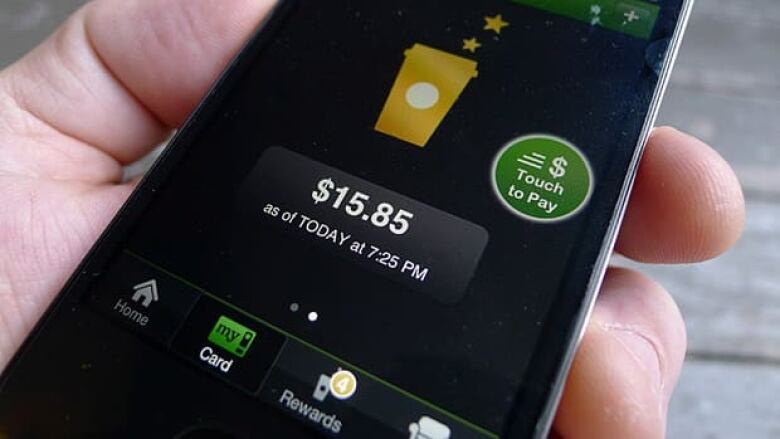Code of conduct to add rules for paying by smartphone
Debit, credit card conduct code under revision to cover new mobile payment technology

As Canadians embrace new ways to pay usingmobile devices, the federal government is revising its code of conduct for credit and debit cards to offer businesses and consumers similar protection when using the new technology.
New "digital wallet" applications allowconsumers to purchase itemsbytapping a cellphone on a pad at the cash, much like a tap-and-pay credit card.
But while credit or debit cardpayments fall under a code of conductestablished in August 2010, mobile paymentsare not currently governed by an accepted set of rules for fair business practices.
Minister of State Ted Menzies announced consultations to add mobile payments to the code at a news conference in Ottawa on Tuesday morning.
"While we support new and convenient payment options, small businesses and consumers should not be punished with new hidden fees or undisclosed conditions," Menzies said in a release outlining the proposed addition ot the code.
Worries about 'fee-palooza'
Noting the emergingtrend toward using smartphones to pay for everything from parking meters to cups of coffee, Menzies said the government's goal was "to ensure that the principles of transparency, fairness and competition are respected."
The Canadian Federation of Independent Business had previously expressed concerns that a "fee-palooza" could hit small businesses who want to offer thenew convenienceto their customers but fear hidden charges ifthepaymenttechnology isn't regulated.
"Todays actions are welcome. They show that the code can evolve, and will address some of the reforms needed to continue to level the playing field between payments operators and small business," the group's vice-president, Corinne Pohlmann, said Tuesday.
Businesses and consumers now have 60 days to comment on the proposed rules.












_(720p).jpg)


 OFFICIAL HD MUSIC VIDEO.jpg)
.jpg)



























































































